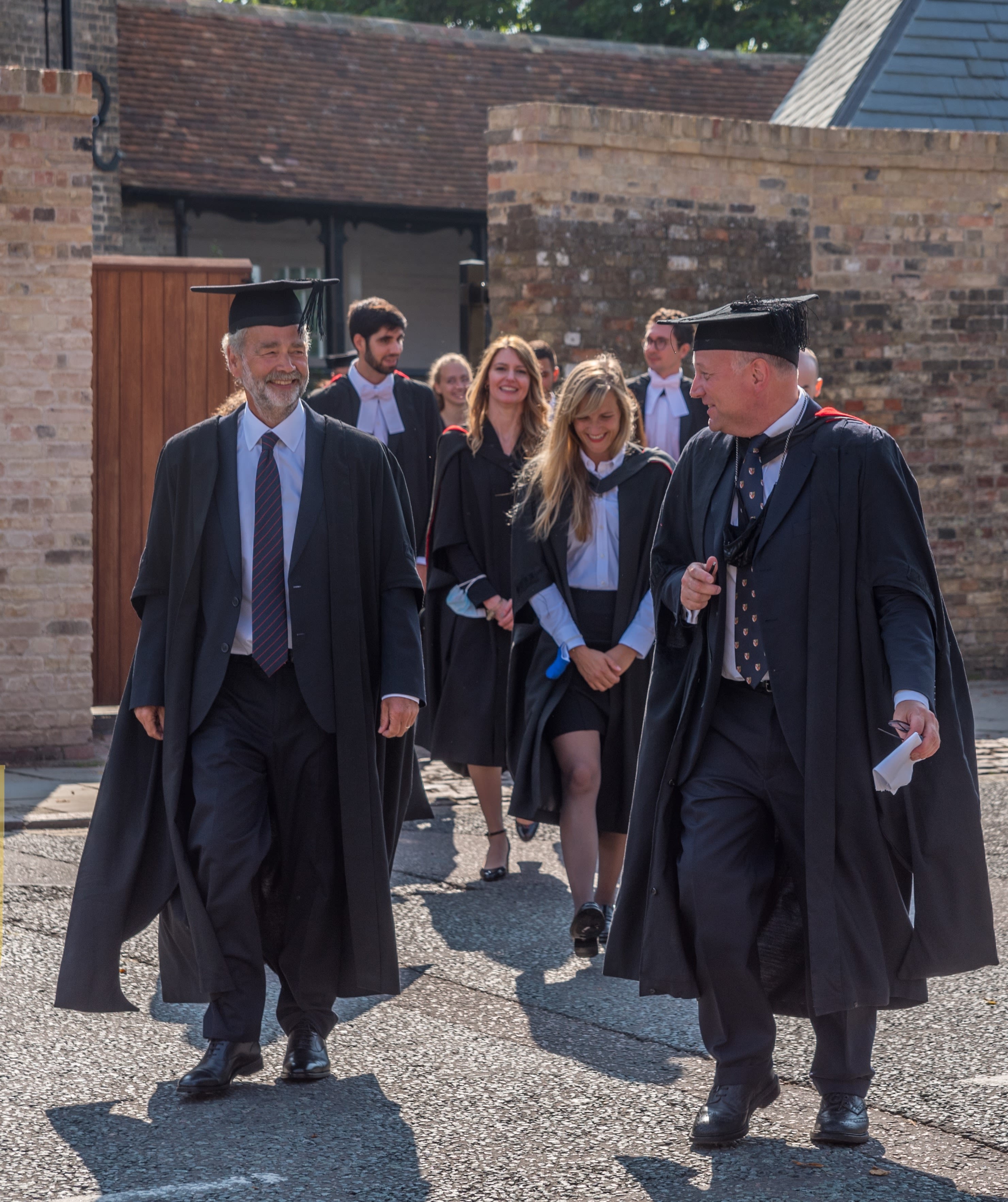A Message from the Master
Dr Mike Rands
Global Challenges, Local Solutions and Planning for the Future

Like Darwinians all over the world, I am very aware of the growing number of global challenges we face. One of the people I respect most, Sir David Attenborough, said in his plenary address to the Climate Change CoP in Glasgow last year:
“We are already in trouble. The stability we all depend on is breaking. This story is one of inequality, as well as instability. Today, those who’ve done the least to cause this problem, are being the hardest hit. Ultimately, all of us will feel the impact…”
The United Nations highlights addressing climate change, decolonisation, food security, human health, inequality, migration and poverty as priorities for the coming decade. Not surprisingly, many of these issues are interrelated; tackling one can have a positive impact on the others or vice versa.
During my first 18 months as Master, I have been increasingly impressed and excited by the efforts of the Darwin community to address such global challenges. Significant contributions come from a wide range of research conducted by our Fellows including: the University of Cambridge’s climate change programme, Cambridge Zero, led by Emily Shuckburgh; Cambridge’s Strategic Research Initiative in support of the UN Sustainable Development Goals, co-directed by Alan Blackwell; the Cambridge Institute of Public Health directed by Carol Brayne; and the pioneering work to create novel vaccines to combat influenza and coronavirus led by Jonathan Heeney. As 2021 drew to a close, we were really pleased to hear that clinical trials had begun on Jon’s new Covid19 vaccine!
Last year Darwin College joined forces with Cambridge Zero and the Cambridge Centre for Science and Policy to further enhance the policy impact that research can have on combatting climate change through the appointment of three David MacKay Post-Doctoral Research Associates in recognition of the late Sir David MacKay – a distinguished Darwin Fellow, Regius Professor of Engineering, Government Chief Scientific Adviser on Climate Change, and author of Sustainable Energy without the Hot Air. Each Research Associate is exploring a different policy issue: the decarbonisation of healthcare; the relationship between genetically modified organisms and net zero carbon emissions; and what we can learn from past civilisation collapses to address climate change and emerging technologies.
We were also very happy that one of Darwin’s nominations for an Earthshot Prize reached the 15 finalists (out of over 750 applications) earlier this year. The Prize, a new scheme launched in 2020 by Prince William, The Duke of Cambridge, is designed to incentivise change to repair our planet. Our nominee, Sanergy, recycles human sanitary waste to create fertiliser, animal food and biofuels. Currently based in Nairobi, Sanergy now aims to scale-up its activity to other urban conurbations with the support of the Earthshot Prize, Darwin College and the University of Cambridge (see 'Sanergy Darwin College nominated Earthshot Prize Finalist').
As I write, we are looking forward to welcoming our eminent speakers for the 2022 Darwin College Lectures on FOOD. This topic also reflects on global challenges and includes a fascinating array of talks including: Food and Climate Change; Food, Power and Society; and Should Cats and Dogs go Vegan?! Do join us online or in person for these thought-provoking lectures.
Within the College, our students and staff continue to take a growing number of local actions to address global challenges. Last academic year, students launched Project Second Life, a highly successful scheme by which departing students gift practical belongings for incoming Freshers and in so doing, reduce the need for purchasing new materials. They also support RE.USE, a project to remove single-use food containers from the College. As I reported in the last Darwinian, the College launched an annual Green Week and the catering Team and DCSA continue to champion a growing number of measures to reduce our environmental footprint.
One of the most exciting recent developments is a study that shows how the College could reduce its energy consumption and degasify by switching to a heat pump-based source of energy, potentially including the use of water-source heat pumps. While further studies and costings are required, this should enable Darwin to achieve zero carbon emissions in the foreseeable future.
Turning to the future, I am delighted to report that the Governing Body have decided the College would benefit from developing a Strategic Plan over the coming year. Such a plan will consolidate Darwin’s existing strengths, articulate a shared long-term vision for the College and set out our strategic priorities for the next ten years. This will ensure that Darwin has a distinct niche in relation to the rapidly evolving state of higher education and research, and a clear and exciting vision and framework for exciting new developments in the College.



